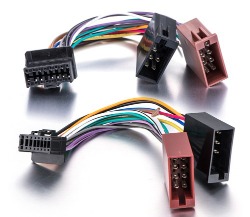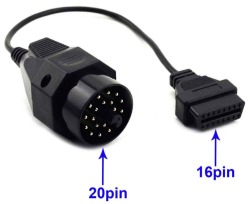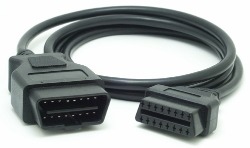


OBD Cable is an essential tool used in the automotive industry for diagnostic purposes. It serves as a bridge between the On-Board Diagnostics (OBD) system of a vehicle and external devices such as scanners or computers. This cable enables mechanics, technicians, and car enthusiasts to access valuable information about the vehicle's performance, identify any potential issues or malfunctions, and make necessary adjustments.
With its standardized connectors and protocols, the OBD cable ensures compatibility across different vehicle makes and models. It allows for seamless communication between the OBD system and external devices, facilitating efficient troubleshooting and accurate data analysis. The cable typically consists of multiple pins that transmit various signals related to engine parameters, emissions control systems, transmission functions, and fuel efficiency monitoring, among others.
Moreover, certain OBD cables come equipped with built-in microcontrollers or processors that enhance their functionality. These intelligent cables can interpret complex data from the OBD system more efficiently and provide detailed reports on engine health status or even suggest possible solutions based on historical patterns.
In addition to professional use by mechanics at repair shops or dealerships, DIY car enthusiasts also find great value in owning an OBD cable. It empowers them with insights into their vehicle's inner workings beyond what traditional gauges can display. By connecting their laptops or mobile devices via an OBD cable interface software application specifically designed for diagnostics purposes; they gain access to comprehensive information about fuel consumption rates over time; average speed calculations; emission levels; battery voltage readings; trouble codes identification; live sensor data visualization graphs - just to name a few possibilities!

